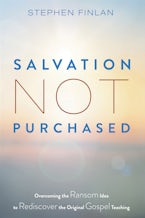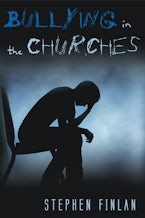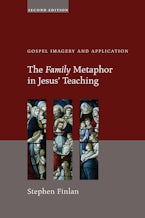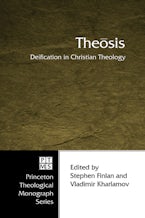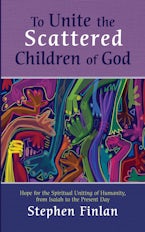Salvation Not Purchased
Overcoming the Ransom Idea to Rediscover the Original Gospel Teaching
Imprint: Cascade Books
Many ministers and faithful Christians instinctively recoil from "washed in the blood" theology, but they hesitate to discuss the subject. This book, by one of the world's leading authorities on atonement doctrine, shows how the "purchased by the blood" idea is out of step with the teachings of Jesus, who said that God reaches the pure in heart without any sacrificial payment. The successors of Paul took the Apostle Paul's sacrificial metaphors far too literally and turned them into an imagined "mechanics" of salvation in which God is "paid off." Over the centuries, this manipulative idea has been the source of confusion and mischief, from the anti-Semitic superstitions of the Middle Ages, to the pedagogy of shame taught in many fundamentalist churches today. Our understanding of Christ will be enhanced if we can recover the original apostolic Christology, which was based on Christ as Creator and life-giver.
Stephen Finlan is the pastor at The First Church (UCC), West Bridgewater, MA, and has taught theology at Fordham and Drew Universities. He is the author of Problems with Atonement (2005), Bullying in the Churches (2015), and The Family Metaphor in Jesus’ Teaching (2013), and the co-editor of Theôsis: Deification in Christian Theology (2006).
“Stephen Finlan offers a lucid and thorough critique of the view that ‘Christ died for our sins’ is a central tenet of Christianity. He shows that neither Jesus himself, nor much of the New Testament, nor the Greek patristic tradition thought so. Sacrificial metaphors, used in diverse ways by the apostle Paul, had an afterlife in Christian theology, abetted by psychological and social needs. This will be a provocative and illuminating read for pastors and lay Christians alike.”
—Harold W. Attridge, Yale Divinity School
“Passionately rejecting those aspects of traditional atonement theory that implicitly turn God into a severe, sacrifice-demanding Father, and instead, pointing out the biblical evidence that reveals the original teaching of Jesus as emphasizing a generous and merciful loving God, Stephen Finlan’s remarkable slim volume, Salvation Not Purchased, must absolutely be read and reflected on by all who preach and presume to teach others how to preach the Christian doctrine of salvation.”
—Robert J. Daly, SJ, Boston College
“By putting—and keeping—Jesus square at the center, Stephen Finlan gives us an extraordinarily helpful treatment of atonement theology. Salvation Not Purchased is concise and accessible, but also rich in detail and analytically strong. Finlan starts with the right question—what do we learn from Jesus’s life and teaching about salvation?—and then shows how satisfaction atonement theology distorts the gospel. A book with strong ethical implications.”
—Ted Grimsrud, Eastern Mennonite University
“In this book, Stephen Finlan redeems the traditional theories of atonement and hell by ridding them of their manipulative ‘bad news’ gospel message that depends solely on the economic sacrifice of an innocent victim before God can or will forgive sin. Instead, by exploring the Bible in its original languages and contexts, Finlan offers readers a gospel message that is truly good news from beginning to end. He presents these significant and provocative ideas with a pastoral heart and extends to his readers practical suggestions for living out the good news for the glory of God and for the furtherance of the divine kingdom. Salvation Not Purchased is a beautifully written, accessible, practical, and theologically stimulating book, one that I plan on using with church groups and in my undergraduate college courses.”
—Sharon Baker Putt, Messiah College
“In Salvation Not Purchased, Steve Finlan continues to popularize his insightful research on Pauline atonement metaphors, making it accessible to a broader audience of ordinary Christians. In fact, one does not need to agree with his interpretation of animal sacrifice, nor with his type of incarnational Christology or his use of the gospels, in order to appreciate his zeal to correct and present alternatives to an entirely unhealthy Christian theology of penal substitution. Finlan’s small book is a biblical theology approach of sorts, a plea for a decent, biblically based, liberal theology of salvation through Christ, and an interesting reflection on the psychologically damaging consequences of a conservative atonement theology.”
—Thomas Kazen, Stockholm School of Theology
“Stephen Finlan takes the reader through Scripture and into the early church fathers and even some modern psychology to put to rest the historical misunderstanding of the metaphor responsible for thinking that Jesus must die for the Father to forgive the sins of humanity. Blood and sacrifice are powerful metaphors for the Jewish audience, but Jesus is the healer, co-creator, and goal of Christian life who reveals in his person the unbounded healing mercy of God. This book is a treasure for pastors preaching as for anyone interested in sound exegesis to dispel misguided notions of atonement and sin that have prevailed too long in Christian communities.”
—Terence McGoldrick, Providence College

